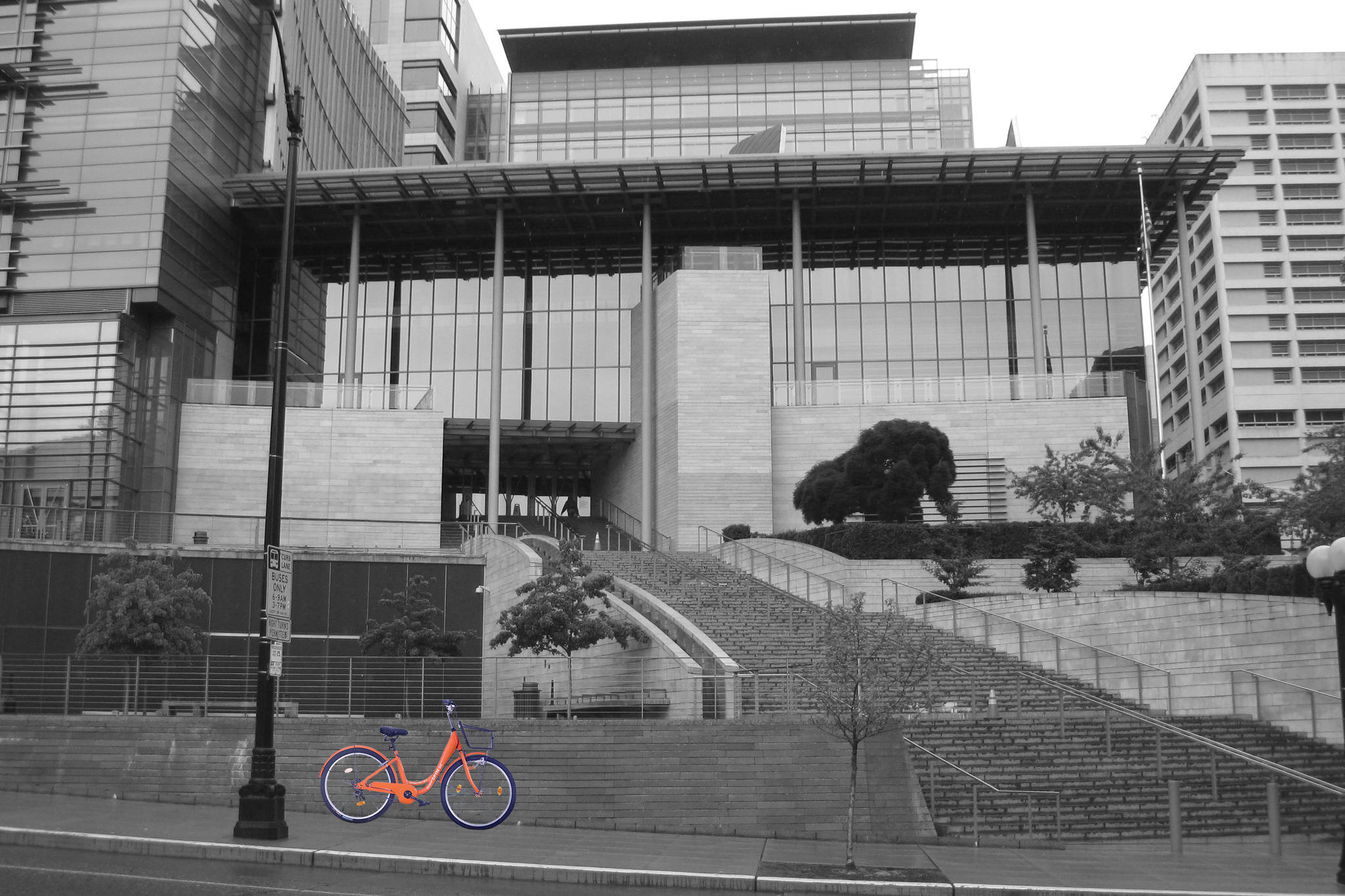As soon as a month from now, Seattleites may be able to rent bicycles located around the city via smartphone. Unlike the defunct Pronto bikseshare, these new services—there are potentially two—will allow users to park the bikes pretty much anywhere. The cost? A buck per ride.
Tom Fucoloro at Seattle Bike Blog broke this story. “It’s basically Car2Go, but a bicycle,” he wrote. To use, riders need only to download the app, register, and then either scan a QR code or enter a code manually; both of which are located on the bike, which also has built-in GPS to allow companies and the city to gather data on rider trends, according to Fucoloro. One company, San Fransisco’s Spin, is already up-and-running in its hometown, as well as Austin. Fucoloro reports that company CEO Derrick Ko says they plan to launch in Seattle “as soon as possible.” Last week, Fucoloro rode a rent-a-bike in downtown Seattle from another company called BlueGoGo. The China-based operator is preparing its first go in North America once the weather clears up. Both companies have “thousands” of bikes sitting in storage, ready for rollout on the streets of Jet City.
In response, City Councilmembers Rob Johnson and Mike O’Brien are working on legislation—or a director’s rule, or an agreement with vendors, or something—to curb the pain of any potential side effects that might come with thousands of new bicycles descending upon our streets.
“The idea that the city might be inundated by bikes and we’ll be overwhelmed,” says O’Brien, “it’s kind of like, ‘Wow, that’s a cool problem to have.’”
O’Brien and Johnson are avid urbanists and cyclists. Their plan is to have a pilot period as short as this summer or as long as the rest of the year in which pretty much any vendor can come compete in an open market. How the pilot goes will determine what the final, post-pilot legislation looks like. Johnson and O’Brien aim to have a regulatory framework, administered via the Seattle Department of Transportation, ready for the pilot period within a month. They have four criteria they’ll demand any vendor conform to:
1. Geographic equity. Ultimately, bikeshare needs to be accessible to everyone around the city. That might not happen during the pilot phase, though.
2. Protection of right-of-ways. Parked bikes can’t clog up sidewalks or existing bike parking (the bikes are self-locking, so the latter may not be a problem in the first place.) Essentially, there can’t be giant mounds of unused bicycles laying around.
3. Safety. Bikes must be well-maintained and users need to know that King County law technically requires cyclists to wear a helmet. Johnson says he will not try to require vendors to provide a helmet.
4. Collect data. “We want to know which bikes are going where,” says Johnson. That data will be used by private vendors and city regulators to decide where to invest new bicycle infrastructure and to allow for other tweaks to the system, ad infinitum.
Johnson says he “shared this framework” with SDOT director Scott Kubly, who was “very interested.”
O’Brien says he expects to ultimately create a special permit for bikeshare vendors, including fees to pay for bike infrastructure and whatever other mitigation the bikeshares might elicit. “We get to write the rules on this one,” he says, and he’ll write them (at least during the pilot) such that the city can revoke a vendor’s license without cause, whenever city leaders feel like it. The constant implicit threat of losing the right to do business in Seattle should prove a powerful incentive for vendors to be on their best behavior. “Nothing is written down yet,” says O’Brien. According to Fucoloro, both Spin and BlueGoGo say they want to play nice with city regulators after facing backlash in San Francisco and Austin, respectively.
Councilmember Lisa Herbold wasn’t available for comment Friday, but during the Pronto debacle last year she wrote a blogpost advocating pretty much exactly this type of approach: leveraging the private sector to serve a public good, through smart regulatory incentives.
“I believe bike sharing can be a productive part of Seattle’s transportation network,” wrote Herbold. “However, I believe we would be best served by a privately owned and operated system, in the same way as Car2Go, the successful car-sharing program, is privately owned and operated in Seattle.”
cjaywork@seattleweekly.com








